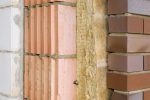Whether you own an ocean-going yacht or a weekend cruiser, marine insulation is important to maintaining your boat’s comfort and longevity. Learn about the complexities of marine insulation, as well as some of the best solutions available today.
Insulation for ships and vessels includes fire safety, thermal insulation, sound insulation and more. Each type of insulation has specific needs and requirements depending on the ship or yacht.
Thermal Insulation
Ships and yachts require thermal insulation to maintain a stable temperature level. Insulation materials adapted to marine applications should be non-combustible with additional fire resistance properties and soundproofing properties. Additionally, insulation for ships must withstand humidity and water.
A marine vessel or yacht, during its life, travels across many locations that experience different climate conditions. This makes it difficult to maintain the same temperature throughout the ship. Insulation should be installed on structural boundaries such as bulkheads, decks and other areas of the ship in order to keep different areas at different temperatures.
Several types of insulation material can be used in a marine application, but the choice of insulation depends on the type of ship, e.g. military, commercial or passenger. Moreover, the choice of insulation should consider requirements regarding fire safety and weight. Various types of foam, stone wool and glass wool based insulation are commonly used in the maritime industry. Additionally, advanced insulating materials based on aluminium or a combination of different material bases are now available to meet all the marine insulation technicalities and specifications.
Sound Insulation
A ship must be insulated against water, heat and fire but also sound and vibration. Specialized insulation solutions provide acoustic properties and adhere to specific requirements for marine applications such as water impermeable, flame retardant and thermal resistance.
Unwanted noise and vibration on commercial, luxury, defence or military vessels can significantly reduce boating pleasure. Using sound proofing insulation can help prevent structure-borne vibration and conducted noise from engine machinery, creating a more enjoyable boating experience for passengers and crew.
Acoustic insulation is a critical component of many types of marine vessels, from yachts to cruise ships and ferries. Quadzero NL’s Decidamp product range is specifically designed to effectively insulate interior lodgings against wavelap and structure-borne noise transmitted by vibration. In addition, Decidamp products can act as effective barriers against air borne noise transmission between floors and equipment onboard a vessel.
Fire Resistance
In marine applications, fire resistance is a very important property. Ships and yachts travel to different places with a variety of climate conditions, and the materials used for insulation need to be able to withstand humidity and frequent contact with water molecules.
Insulation for houses can primarily protect against heat and sound, but the material used on ships needs to meet more requirements than that. For example, a cargo space or mechanical equipment space may need to be kept at a different temperature than adjacent spaces, which requires structural insulation to thermally separate them.
ULTIMATE U SeaProtect marine insulation has been extensively tested and is MED approved, making it suitable for use on ships and other marine structures. This non-combustible insulation is based on Insulfrax bio-soluble calcium-magnesium-silicate high-temperature insulation fibers and has a tough foil facing. It also offers significant weight savings compared to traditional stone wool marine insulation. Fabrication, engineering, design, assembly, routing, printing and multi-cavity coating services available.
Weight
Marine insulation has to take a beating. It must be able to resist extreme weather conditions, salt action and vibrations all while remaining flexible enough to fit in the tight spaces of steel boats ribbing and stringers. It must be able to do so without adding too much weight.
Most steel boats have a foam board insulation in their cored areas and this works well. However, if this insulation is not properly fitted and sealed against the hull it will allow air to make its way behind the foam, causing condensation which can eat through the paint and cause mildew.
This is especially a problem on cored areas of the boat. Closed cell foam is the best solution as it stops condensation and if tightly bonded should stay mildew free.
